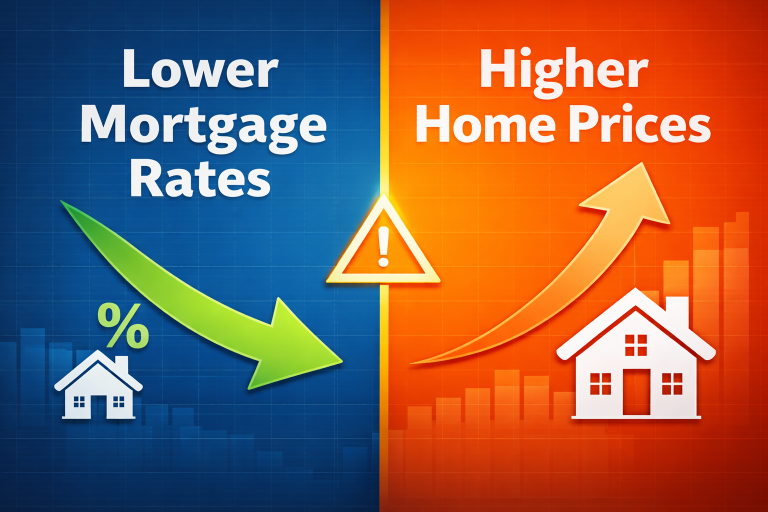For many homebuyers, getting a mortgage can feel like navigating a maze of paperwork and requirements. There are phone calls to return, documents to upload, and deadlines to meet. But when you boil it down, there are really only two key hurdles that can stop a loan from closing: the borrower’s credit and income, and the property’s appraisal. Understanding these two critical areas will help you focus on what matters most and move through the mortgage process with confidence.
Credit and Income: The Heart of Loan Approval
Lenders base their decision on your ability to repay the loan. That means your credit score, income stability, and overall financial picture are the foundation of your mortgage application. Underwriters carefully review your credit history to evaluate how you’ve handled debt in the past, and they verify your current income to ensure you can handle the new mortgage payment. These steps are not simply bureaucratic—they protect both you and the lender by ensuring the mortgage is affordable and sustainable.
- Credit Score: A higher score can unlock better interest rates and more favorable terms. Even if your score is lower, certain loan programs such as FHA or VA may allow you to qualify with more flexible credit requirements. Good credit demonstrates that you manage debt responsibly and gives the lender confidence in your ability to repay.
- Income Verification: Lenders will require pay stubs, W-2s, tax returns, or other documentation to confirm stable income. They also calculate your debt-to-income ratio (DTI) to ensure your total obligations fit within their guidelines. A lower DTI shows that you have sufficient income to comfortably manage your mortgage payment along with your other financial responsibilities.
- Consistency is key: Avoid opening new credit accounts or making large purchases during the process, as changes to your credit profile or debt levels can impact your approval. Even small changes—like financing a car or applying for a new credit card—can alter your DTI and trigger additional underwriting reviews.
It’s important to begin preparing your credit and income documentation before you even start house hunting. Review your credit report early to correct any errors and pay down revolving balances where possible. Gather recent pay stubs, W-2s, or tax returns in an organized folder so you can quickly provide what your lender requests. These proactive steps can save time and reduce stress when you’re under contract.
The Appraisal: Proving the Home’s Value
Even if your finances are strong, the lender must confirm that the property is worth the amount you’re borrowing. A licensed appraiser evaluates the home’s condition, location, and comparable sales to determine fair market value. If the appraisal comes in at or above the purchase price, you’re clear to move forward. But if it falls short, it can create challenges that require careful negotiation and planning.
- Low Appraisal: If the appraised value is less than the purchase price, you may need to renegotiate with the seller, increase your down payment, or consider a different loan type that allows for a higher loan-to-value ratio. Sometimes buyers and sellers meet in the middle—reducing the purchase price slightly while the buyer brings in a bit more cash to close the gap.
- Required Repairs: For certain loans—like FHA or VA—the appraiser may require specific repairs before the loan can close. These repairs often involve health and safety items such as handrails, peeling paint, or roof issues. Addressing these promptly keeps the process on track and prevents last-minute surprises.
The appraisal protects both you and the lender by ensuring the property is a sound investment. It confirms that the home provides adequate collateral for the mortgage and that you are not overpaying for the property. While it may feel like a hurdle, it is a critical safeguard in the lending process.
From the borrower’s perspective, many steps—title searches, escrow instructions, and insurance verifications—can seem like obstacles. But these are routine administrative tasks that rarely derail a loan. Once your credit and income are approved and the appraisal meets or exceeds the purchase price, the rest of the process is primarily documentation and scheduling. Title and escrow companies handle most of these tasks behind the scenes, and your lender coordinates the final details to get you to the closing table.
Tips for a Smooth Process
- Check your credit early and address any issues before applying. Small improvements to your score can save thousands over the life of the loan.
- Organize income and asset documents so you can provide them quickly. The faster you respond to requests, the faster your file can move through underwriting.
- Respond promptly to lender questions to avoid delays. Even minor documentation requests can stall progress if not handled quickly.
- Stay in close communication with your real estate agent and lender to address appraisal issues quickly. If a low appraisal occurs, swift negotiation can keep your transaction on track.
- Avoid major financial changes, such as changing jobs or taking on new debt, until after closing. Stability is key in the eyes of the underwriter.
The mortgage process might feel complex, but it really comes down to two main factors: proving you can repay the loan and confirming the property is worth the purchase price. By focusing on your credit and income and ensuring the appraisal meets expectations, you’ll clear the biggest hurdles on the path to homeownership. With preparation, organization, and the right team, you can move from application to closing with confidence.
Looking for a mortgage? Get a complimentary rate quote now!
Share:
RELATED MORTGAGE ADVICE FROM SCOTT SHELDON
The Only Two Real Obstacles in the Loan Process: Credit/Income and Appraisal
For many homebuyers, getting a mortgage can feel like navigating a maze of paperwork and…
View More from The Mortgage Files:
begin your mortgage journey with sonoma county mortgages
Let us make your mortgage experience easy. Trust our expertise to get you your best mortgage rate. Click below to start turning your home dreams into reality today!



